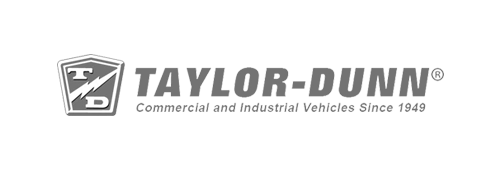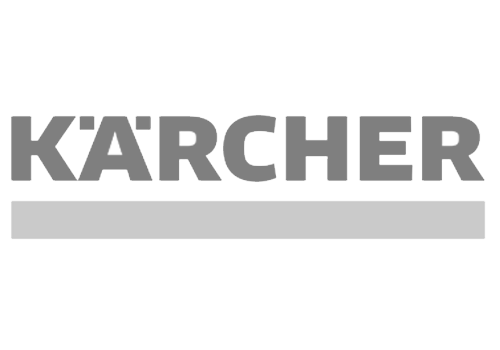Because your business depends on forklift tires to keep your material-handling operations moving, understanding how to maintain your tires ensures maximum productivity, efficiency and safety. Choosing the right tire type recommended by your manufacturer, inspecting them regularly and replacing the tires when required increases performance and achieves many years of durability.
At Barclay, we strive to provide our customers with the tools they need to get the most value from their forklift tires. Besides offering a comprehensive selection of products from the industry’s top brands, we provide a no-cost inspection program to improve your equipment’s uptime.
No-Cost Forklift Tire Program Helps Ensure Uptime
As your partner in uptime, Barclay knows that forklift tire failure may end up resulting in more downtime and expense than the cost of the actual tire itself. As a no-cost service to our partners, Barclay offers the Forklift Tire Survey and Inspection Program for New Jersey and New York customers.
Our Forklift Tire Survey and Inspection Program will:
- Inventory your equipment, and tire sizes and report the current condition of your tires.
- Allow us to recommend alternatives and special products that will help you avoid flats or unnecessary downtime.
- Allow you to better schedule tire changes based on usage.
- And – it’s all FREE – we offer this service merely for the privilege of providing for your industrial forklift tire needs. It’s our way of saying thank you for being our customer.
Take Precautions To Extend Forklift Tire Life
A lot is riding on your forklift tires. To ensure the safety of your staff, equipment and load, visually inspect your tires for wear and replace worn or damaged tires immediately. Taking certain precautions can help extend the life of your tires and save on replacement costs and other potential damage to your forklift. Barclay Brand Ferdon in South Plainfield, New Jersey can help you better manage timely tire replacements and carries high quality replacements for all types of forklifts.
Forklift Tire Care Tips
Some best practices for selecting, maintaining and preserving the life of your forklift tires include:
- Select the right tire, including tire size, type, construction, and compounds.
- Avoid excessive speeds that exceed a solid tire’s capacity to prevent premature tire failure.
- Inspect tires daily/weekly to remove embedded foreign objects and check tread wear.
- Avoid over-lubrication that causes grease and oil to overflow, which can be harmful to rubber tires.
- Keep brakes in adjustment to avoid heat buildup in tires and premature failure.
- Check axle alignment and steering to ensure even tread wear.
- Mount tires centered on wheels to avoid premature tire failure and potential safety hazards.
- Train operators in proper driving techniques, tire inspections, and maintenance to extend tire life and the life of the equipment.
- Keep floors clean, clear, and in good repair. Sharp objects, chemicals, and damaged surfaces directly affect tire life.
- Avoid excessive heat, prolonged exposure to hot surfaces and contact with hot metals.
- Avoid spinning, sharp turns and quick starts and stops that can rapidly wear tread and cause premature tire failure.
- Avoid overloading, which causes rubber separation, cutting, chipping and tire blowouts.
- Avoid oil, grease, and gasoline that can break down the tire rubber compound.
- Avoid standing loads that cause flat spots to form on solid tires.
Forklift Tire Replacement
Worn out tires can affect the forklifts carrying capacity, starting, stopping and shock absorption, which can cause vehicle damage. Never operate a lift truck with tires worn beyond the suggested wear indicators. Solid rubber tires should be replaced when 50% of the rubber is gone or you see flat spots or pieces of the tire falling off.
Cushion vs. Pneumatic Tires
The two most common types of forklift tires are cushion and pneumatic tires. These designs have significant differences that equipment owners should consider before replacement. Choosing the right tire depends on your specific lifting operations and the type of surface on which the lift typically travels.

Smooth
Cushion tires, also called smooth tires, usually feature solid rubber fitted around a metal band. Although cushion tires are less expensive and easier to maintain, they do not provide the same traction levels as pneumatic tires. Even though they work both indoors and outdoors, cushion tires are best suited for work in indoor warehouses and loading docks.
Cushion tires also improve maneuverability in smaller spaces by providing a smaller turning radius. Specific features include:
- Indoor & outdoor applications
- Load performance consistency
- Ideal for dry surface starts and stops
- Resists dock plate snags & damage
- Recommended for both drive & steer wheel applications

Traction
Traction tires — or pneumatic tires — are similar in design to a car or truck tire. These tires offer the highest performance and versatility across a broad application range. Pneumatic tires stand out for their exceptional grip on uneven surfaces and challenging terrain, including operations at construction sites, lumber yards and outdoor warehouses.
Pneumatic tires come in several designs, including solid rubber and air-filled. These options are:
- Suitable for most drive applications
- High-performing a wide range of applications
- Fitted with a wide center wear bar for added tread life
Custom Compound
Although traditional forklift tires can handle most industrial applications, some operations still require specialized tires to maximize efficiency and safety. Several examples include:
- Fiberglass impregnated: Fiberglass compound tire tends to allow for better gripping and also longer life, especially in non-marking tires. These tires often work well for companies that operate their forklifts for extended periods.
- Siped: Thin slits are cut across the surface of a tire to improve traction. These tires are especially beneficial for outdoor operations that sometimes contend with snowy, wet or icy conditions. Siped designs can also help control tire heat when a surface is excessively hot.
- Polyurethane: Load wheels for indoor forklifts and pallet jacks offer the highest traction on cold or wet floors, providing grip even on slippery floors. Polyurethane tires also offer superior chemical resistance.
- Static resistant: All forklift tires generate static electricity when the machine is in operation: it’s a normal phenomenon. These tires were developed to alleviate any electrical charge. If your operation involves combustible materials or functions in explosive environments, these tires can help reduce safety hazards.
Forklift Maintenance Plans and Tire Changes in New Jersey
In addition to our tire inspection program, Barclay offers customized preventive maintenance plans for your forklifts and other material handling equipment to match your unique application and budget. These plans eliminate all the guesswork of caring for your equipment while ensuring your lifts receive the appropriate servicing when they require it. By performing the needed servicing and repairs, you can catch minor issues before they turn into expensive problems later.
Contact the Professionals for Forklift Tires
When choosing a dealer for high-quality forklift tire replacements in New Jersey, trust Barclay. Our professional team is available to offer the insight you need for tire selection, replacement and service. Connect with us online to learn more about our services and how they can benefit your operation.







